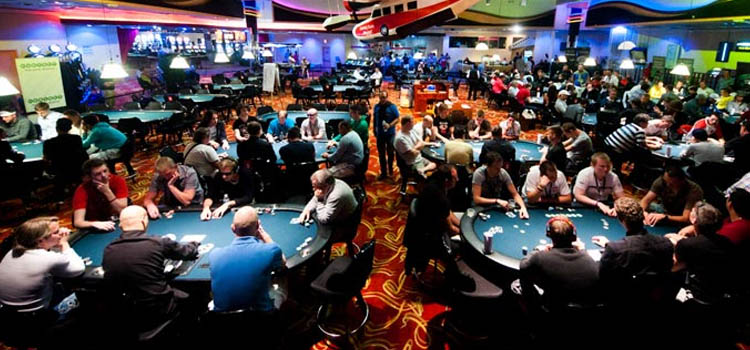
No-Limit Hold'em is not really about the cards you have, but about the cards your opponents think you have. And of course, it's poker's number one skill: being able to correctly put your opponent in a hand. Unlike average players, good players can recognize when their opponents have a weak hand and take the pot right there. That's why they're so good.
Initial stages of a tournament
When you start a tournament, it's best not to be too active and aggressive because the blinds aren't very big at first. Winning those small blinds isn't going to help you much. What will help is to sit back, wait, and watch your opponents to see how they play. At this stage, worry about knowing the dynamics of the game in the first place. It's also important to know how long it will be before the table is broken. If yours is the first, you'll have to have a different strategy than if you expected to play the same players all day.
At this stage, most players play tight. When you start getting to know your opponents well after a few levels, if they're not playing too fast, you can occasionally be aggressive, win jackpots, and start accumulating chips.
Intermediate stages
As the blinds increase (and certainly, when you start laying earlier), you need to become more aggressive. Usually around the third or fourth level, you should start being more active. At this stage, there are more chips to win at the table, so you have more reasons to play aggressively.
Final stages
Just before the collections and just before the final table, the best players take a tremendous advantage of the situation. In the WPT, because television of the final table begins when there are six left, the pro's can do a lot of damage and win a lot of chips when there are nine players left. When they reach the final table of nine, everyone wants to appear on TV. The best raise constantly to build big stacks so that when they reach the last six, they have a lot of chips and a great chance of winning.
I have seen many cases where I had no doubt that someone won because they became aggressive when they were approaching collections. An example that comes to mind happened during the main event of the 1992 World Series of Poker. I was sitting next to Hamid Dastmalchi, who eventually won the tournament. Coming up on charges, he had about $60,000 in chips. There were 37 players left and it was the first time they awarded 36 places. They were playing hand-to-hand and most players threw their cards waiting for someone to be eliminated. No one wanted to play a well. I would bet that never in the history of poker was there a tournament where the bubble had been so long.
It took a couple of hours until one was eliminated. Dastmalchi simply began to raisear each well. He noticed that no one was playing. I was one of the culprits because I wasn't doing it either. Hamid increased his stack from $60,000 to $160,000 before we finally reached 36 players. That gave him enough chips to advance and win the tournament.
All of the Poker tournaments are regulated by authorities like Gambling Commission
If you want to win, play to win
It is important to know that the percentage of times a good player gets paid is determined by the way he or she plays. If you're just trying to get in-the-money instead of winning, it's a lot easier to do.
If you're playing to win, you're more likely to be eliminated early, but you'll have a much better chance of winning in the long run. You can't be afraid to play jackpots in the early stages of a tournament if you want to win. You have to accumulate chips so that in case you get to the final table, you do it as one of the leaders.
Most of them have the mentality that they have to get to collections first. I used to think that the priority in tournaments was to survive. I had that mentality for many years because, when you put money in to play, your first goal is to get that money back. Then it's a freeroll for the big bills. That's the way you think if you're a player trying to survive by playing the tournament circuit. You know you have to get paid an X number of times a year to survive; otherwise, you're not going to make it. Your bankroll won't take it. Today I don't think this approach is very smart when it comes to winning.




